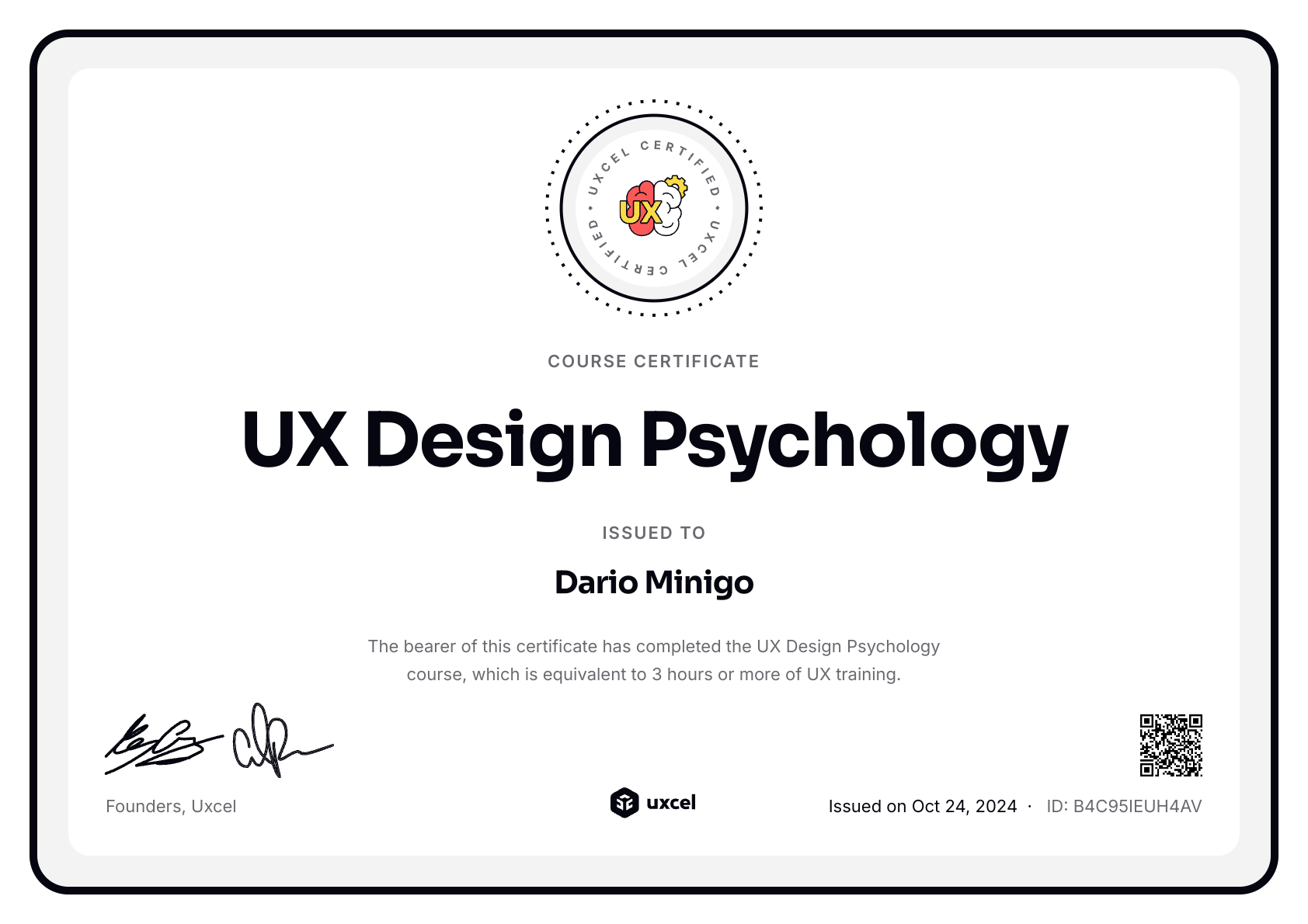Certificate of completion
User Psychology
The bearer of this certificate has completed the User Psychology course, which is equivalent of 3 hours or more of professional training.


Dario Minigo

From course

User Psychology
Explore popular courses

UX Design Foundations

Product Management Case Studies

UX Research
FAQs
Uxcel's UX Design Psychology course explores the intersection of psychology and design. It covers essential topics such as understanding user behavior, cognitive biases, memory principles, and how these psychological insights can be applied to create intuitive, engaging, and user-friendly interfaces. You'll learn strategies to build user trust, avoid common design pitfalls, and enhance overall user experience.
Without understanding psychology, designers can still create interfaces, but there's a high risk they won't meet users' needs, leading to frustration and abandonment. Designers can't assume they know everything or claim to be users themselves, as their experiences and biases differ.
Understanding psychology helps designers create interfaces that truly work for users. It allows them to anticipate needs, reduce friction, and design more intuitive experiences. This not only boosts user satisfaction, engagement, and trust but also helps businesses save money by avoiding costly redesigns and improving user retention. Knowing what makes users tick ensures your designs hit the mark and keeps them coming back.
This course will deepen your understanding of user psychology, teaching you about common patterns of user behavior, how memory works, and what influences users' trust. With this knowledge, you'll be better equipped to create more effective and user-centered designs, improve usability, and build stronger user relationships. By applying these psychological principles to your future projects, you'll be able to design more intuitive and engaging user experiences that truly meet users' needs and expectations.


